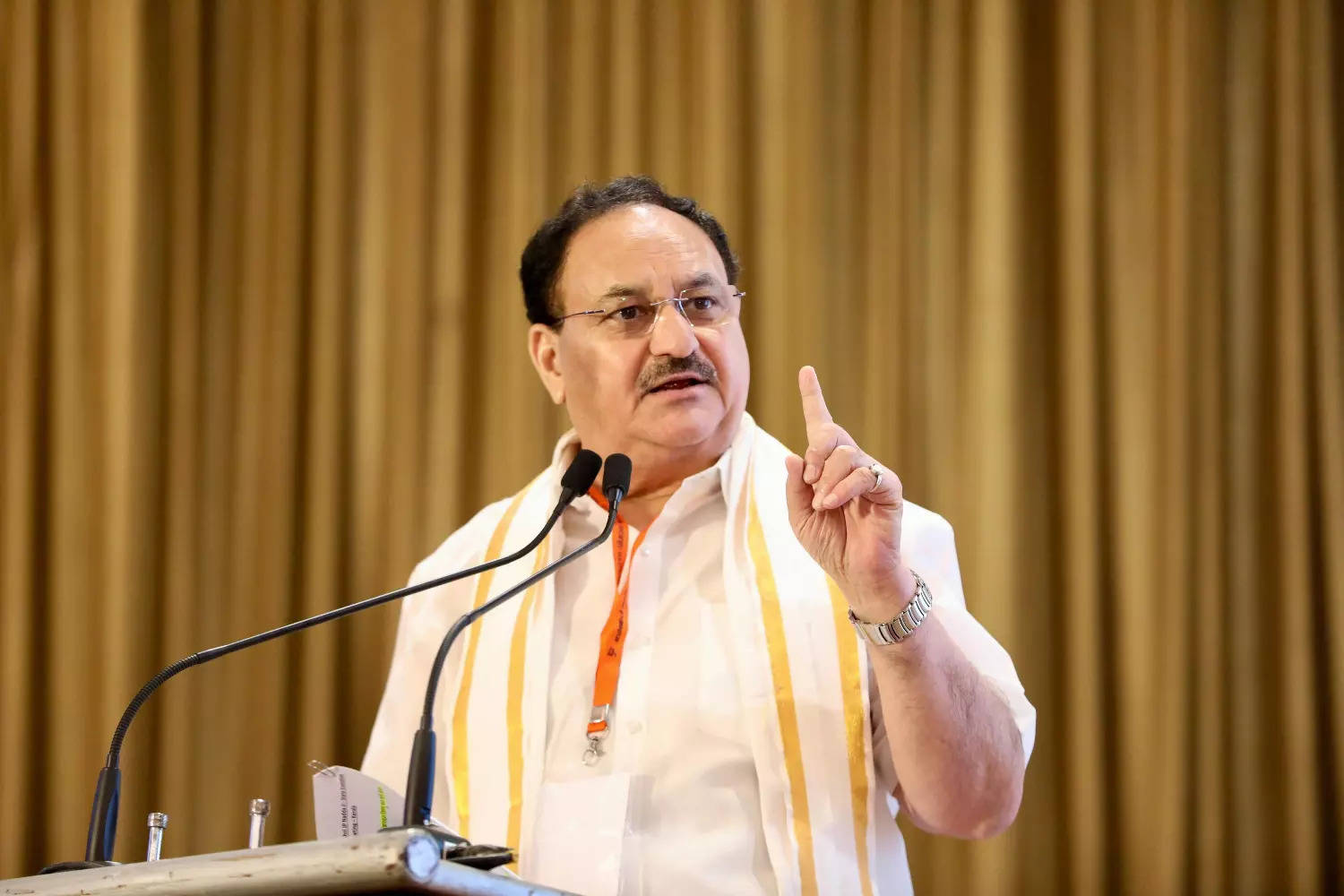[ad_1]

New Delhi, Since the inception of the Ayushman Bharat Pradhan Mantri Jan Arogya Yojana (AB-PMJAY), approximately 68.43 lakh hospital admissions amounting to Rs 13,160.75 crore have been authorised for cancer-related packages under the scheme, Union Health Minister J P Nadda said on Saturday.
Citing a recent LANCET study, he underlined that “timely cancer treatment initiation has improved significantly because of the Ayushman Bharat Jan Arogya Yojana”.
“Patients enrolled under the AB-PMJAY saw 90 per cent rise in access to cancer treatment within 30 days,” Nadda said as he inaugurated the second AIIMS Oncology Conclave 2025 at the National Cancer Institute (NCI) on the All India Institute of Medical Sciences (AIIMS), Jhajjar campus.
He highlighted that through the 217 AMRIT pharmacies spread across the country, 5,200 drugs for various diseases, including cancer, are made available at an affordable rate.
Altogether, 289 oncology drugs are given from these pharmacies at a significant discount of up to 50 per cent of the market rates.
“As a result, so far, a total of Rs 6,567 crore have been saved for 5.8 crore beneficiaries based on the discounts offered,” Nadda said.
“We have plans to establish day care cancer centres (DCCCs) in all district hospitals over the next three years, with 200 this year itself. This initiative aims to bring essential cancer services closer to home, particularly for those in underserved rural areas,” he added.
Highlighting the government’s efforts, the health minister said to prevent and control cancer, improve overall cancer care outcomes and ensure that every citizen, regardless of their location, has access to the care they need, the Centre has been working on a provision for cancer care at the primary healthcare level in the form of prevention and screening, and at the tertiary and secondary level, in the form of diagnostics and treatment and palliative care.
He underlined that the government has introduced screening for individuals aged 30 years and above under the National Health Mission (NHM) at ayushman arogya mandirs, and more than 26 crore people have been screened for oral cancer, 14 crore for breast cancer and nine crore for cervical cancer at the ayushman arogya mandirs.
He also added that “to enhance the facilities for tertiary-level care of cancer, over the last few years, more than Rs 3,000 crore have been approved for the period 2014-15 to 2025-26 for 19 state cancer institutes (SCIs) and 20 tertiary cancer care centres (TCCCs).
Moreover, cancer treatment facilities have been approved in all the 22 new AIIMS with diagnostic, medical and surgical facilities, the health minister noted.
He emphasised that to make cancer treatment available to the poor and vulnerable, under the AB-PMJAY, cancer-related treatment is provided for medical, surgical, radiation and palliative oncology across 219 packages.
“Since the inception of AB-PMJAY, approximately 68.43 lakh hospital admissions amounting to Rs 13,160.75 crore have been authorised for cancer-related packages under the scheme,” Nadda said.
“Cancer is a daunting diagnosis that brings fear — not just of the illness, but of the future, of livelihood, of losing loved ones and the inevitable economic and emotional strain,” he added.
Nadda also highlighted that the cancer incidence is rising in India.
“We are now seeing 1.45 million (14.5 lakh) new cancer patients every year. As the complexity of cancer treatment continues to grow, it is not just about providing the best treatment, it is about making that treatment available locally. Patients should not have to travel long distances for the care they need.
“We need to develop advanced treatment capabilities at the local and regional levels, and it is your responsibility to make this happen,” he said.
The health minister also said the government has approved the creation of 720 additional posts for the NCI, Jhajjar.
These posts include faculty positions, SRs/JRs, scientists, nurses, technicians and administrative posts, he said, adding that “with the creation of these additional posts, the NCI will rise to greater heights”.
Nadda also went for a special visit to the NCI’s newly-built Nuclear Medicine Targeted Treatment Ward and Bone Marrow Transplant (BMT) unit, aimed at improving patient outcomes through state-of-the-art treatment options, specifically for thyroid cancers and hematolymphoid cancers respectively.
Underlining the importance of these developments, the health minister said “these new facilities will provide state-of-the-art care to many cancer patients in this region”.
He added that “under the dynamic leadership of Prime Minister Narendra Modi, the narrative is changing regarding the Indian healthcare system, where bone marrow transplant is possible in institutes like the NCI”.
[ad_2]
Source link




